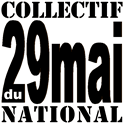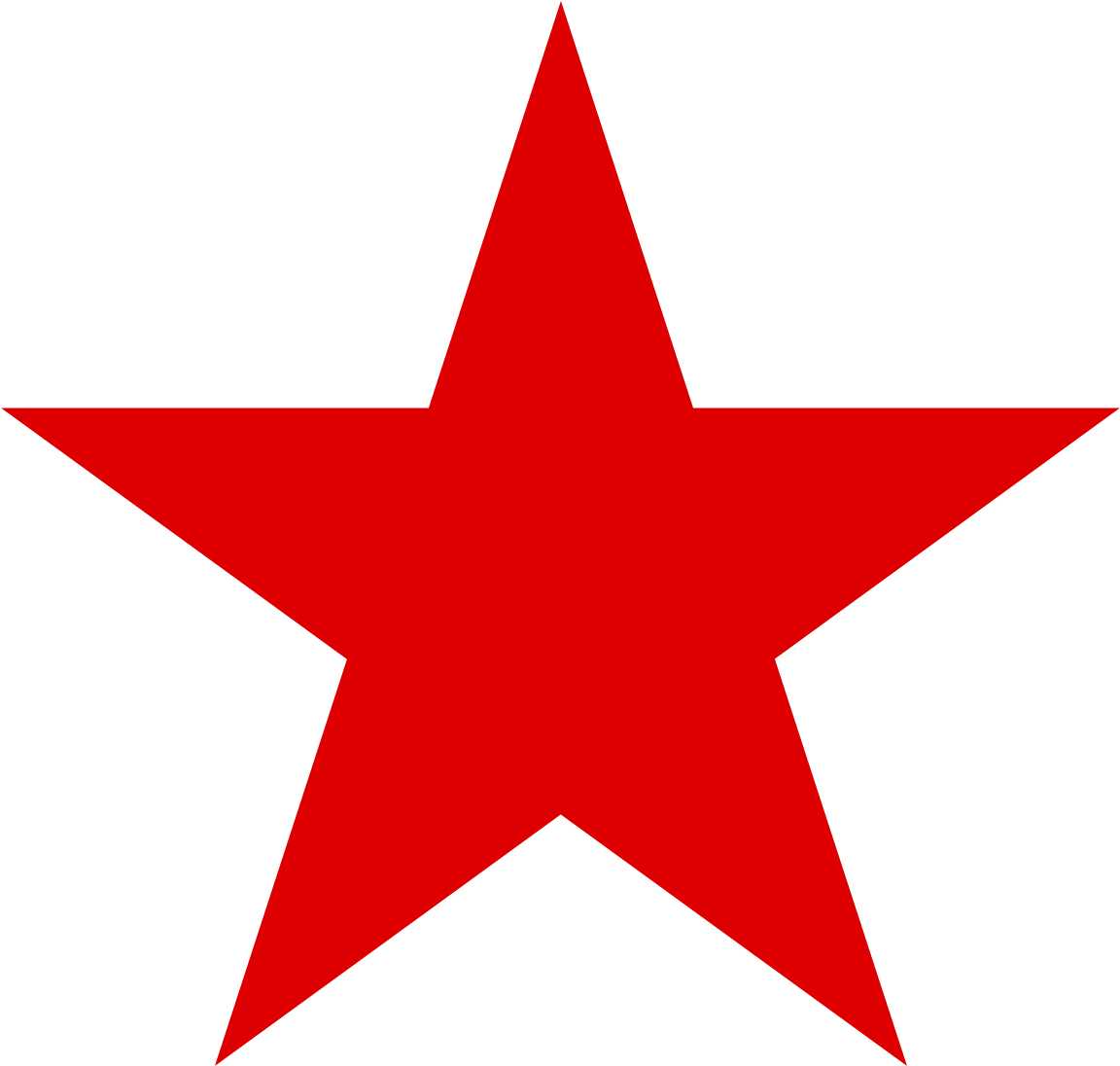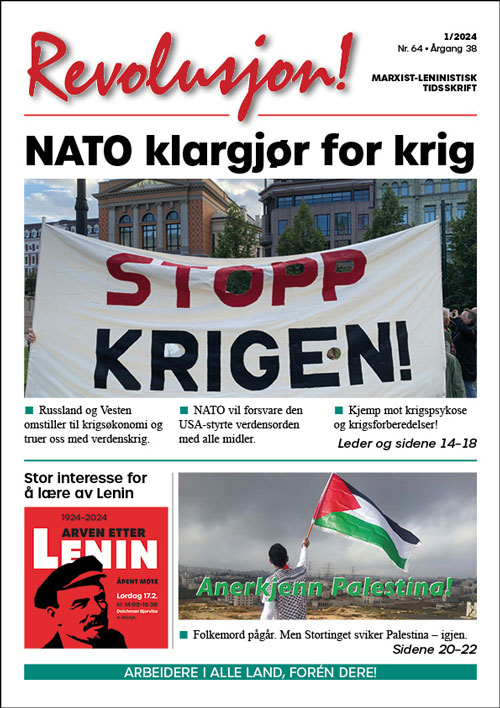Interview with Christian Pierrel, representative of the Communist Workers' Party of France (CPOF) in the national board of the May 29th Collective.
Q: The French NO has had a great impact on the European peoples' struggle against EU and the integration process. What was the role of the May 29th Collectives (committees) in the French NO?
You speak of a «leftist» and internationalist no, contrary to the right-wing nationalist and chauvinist no. How did these two elements interact, and which of them was dominant in the process leading up towards the French referendum?
 A: The 29th of May Committees originate from the «committees for the 'no'» which have played a decisive role in the mobilization of the people in favour of the «no» to the European constitution. All the political parties that have promoted the «no», the main social organizations, like Attac, women's organizations, some trade unions and mainly militants of all these organizations and «un-organized» people worked together, discussed together, organized the meetings, etc. for months. It is these committees who analysed deeply the enormous text, translated it into plain language, in order to be understood by the majority of the people, and who mobilized concretely, by distributing millions of leaflets, organizing hundreds of meetings. There was a national committee, with the representatives of all the organizations, some intellectuals, researchers, etc. and local committees with a large autonomy. On our part, we have participated in local committees, but not in the national committee for the «no». But after the victory of the «no», the 29th of May, we joined the national committee which took the name of «29th of May committee».
A: The 29th of May Committees originate from the «committees for the 'no'» which have played a decisive role in the mobilization of the people in favour of the «no» to the European constitution. All the political parties that have promoted the «no», the main social organizations, like Attac, women's organizations, some trade unions and mainly militants of all these organizations and «un-organized» people worked together, discussed together, organized the meetings, etc. for months. It is these committees who analysed deeply the enormous text, translated it into plain language, in order to be understood by the majority of the people, and who mobilized concretely, by distributing millions of leaflets, organizing hundreds of meetings. There was a national committee, with the representatives of all the organizations, some intellectuals, researchers, etc. and local committees with a large autonomy. On our part, we have participated in local committees, but not in the national committee for the «no». But after the victory of the «no», the 29th of May, we joined the national committee which took the name of «29th of May committee».
 The whole campaign was focused on the «no» to the liberal European constitution. This was the main point of unity and it was very important to struggle for preserving this point of unity. Of course, there were big differences between the organizations who promote the «social Europe» as alternative to the liberal Europe, the dominant trend in these committees and those that denounce the European Union as an imperialist superpower in construction. On our part, we have always combated the illusions about the «social Europe», but in this campaign, we decided, consciously, to focus on the opposition to the liberal constitution, avoiding to make a polemic on the question of «social Europe», without promoting this position.
The whole campaign was focused on the «no» to the liberal European constitution. This was the main point of unity and it was very important to struggle for preserving this point of unity. Of course, there were big differences between the organizations who promote the «social Europe» as alternative to the liberal Europe, the dominant trend in these committees and those that denounce the European Union as an imperialist superpower in construction. On our part, we have always combated the illusions about the «social Europe», but in this campaign, we decided, consciously, to focus on the opposition to the liberal constitution, avoiding to make a polemic on the question of «social Europe», without promoting this position.
By focusing the campaign on the nature of the constitution, as a liberal constitution, the movement was immediately put on a «left» base. The right parties and the extreme right parties do not denounce the liberal policy. They denounce the fact that the EU constitution deprives the French government, the parliament, of many of their prerogatives, which is true, but they are for free market, overall competition, etc.
The campaign put a great emphasis on explaining the economical aspect of the neo liberal policy which the constitution «engraves in marble», as it was said, around the concept of «free competition in all sectors» and the transformation of all activities into «merchandise» (health, education, social protection, etc.), submitted to the overall competition.
It is obvious that the link was made by the people between this project and the concrete policy of the Chirac government, so that the movement for the «no» was nourished by both. It was obvious and practically unquestioned that the campaign had been waged by the «left» forces, the nationalist right wing playing a marginal role, mobilizing their electorate.
It is the Socialist Party (Social Democrat), the main looser of this campaign, that tried to present the opposition to the constitution as a narrow nationalist position, adding that the people had no real idea about the document, that they have not read it, etc. As they had no serious argument in favour of the constitution, as the campaign was first of all, a huge campaign of explanation, these attacks, full of anger and despise, had the opposite effect. The people were more determined to inflict a defeat to the promoters of the «yes».
We, as party, and some other forces, have insisted upon the «internationalist» aspect of the «no». First, we have developed our campaign among the popular sectors, among the trade union movement, the workers in general. So, we have explained that the overall competition is a threat for all the workers, of all the countries, putting forward the idea of «all together against the liberal policy, everywhere». The idea that the «social dumping» is against all the workers and people, that everybody will loose, is based on the daily experience of the workers.
We have also denounced the «international policy» which constitutes half of the text of the constitution – a fact generally underestimated. This «foreign policy» is mainly a «defence policy». We have put forward all the aggressive aspects of this defence policy, explaining, for example, that the French policy of supporting dictators in Africa, because they apply the policy of spoliation and plunder, will tomorrow be an European policy.
We have mobilized the progressive forces, the anti-colonial and anti-imperialist forces to take an active part in the campaign, by explaining the neo-colonial domination which is developed by France and by the EU and which would be reinforced by the European constitution. We have also mobilized the Marxist-Leninist parties and organizations of Europe, especially those of the countries in which there is a popular movement against EU (Denmark, Norway) in order to show that the popular opposition is international, with clear internationalist positions. Our newspaper played an active role in publishing articles written by our brother organizations and the meeting of the 5th of May , which we have organized in Paris with about twenty organizations, for a popular and internationalist no played also a positive role.
Q: Can you describe the structure of the collective; which organizations and parties support it, what are the predominant class forces, how it is financed and how are its activities organized on the national and local levels?
There is a national committee which groups the different organizations: the PCF , the LCR (Communist League, trotskyite), the «Alternatifs» (social and ecological left organization which supports José Bové ), our Party, a trend of the Green party which made campaign for the «no», the trend inside the socialist Party which made campaign for the 'no', and some other small political groups, a part of the women organizations, among them our friends of the Coordination of women groups Egalité («Equality»), Attac, another foundation called «Copernic», a trade union called «Solidarian» (SUD), a scission of the right social-democrat trade union CFDT, and some other «social» organizations, as the «union of secular families».
This national committee functions on the base of political «consensus» and of the voluntary contributions of each organization. For each activity, each party contributes according its «possibility». For example, the website collectifdu29mai.org has been financed collectively.
The national committee has a link with all the local committees, through internet. On the national website, you will find all the links with the local committees, their contributions to the «anti-liberal charter», etc. For example, for the elaboration of the «anti-liberal charter», the national committee has elaborated a project which has been sent to all the committees. The fourth version of this charter has been adopted, with some modifications to be included, at the national assembly of the committees which tokk place on May 13, in Paris.
Several general assemblies of this type have been organized, with delegates from the different committees and the national committee. Locally, the committees have all latitude to organize as they want. Some have membership fees, some are local groups, others have a regional coordination.
Q: After the successful ‘no to membership'-campaign in Norway in 1994, some parts of the 'no'-front – notably the leading bodies of the left-reformist and petty bourgeois parties – stated there was no longer any need for the organization «No to the EU». They wanted to put it temporarily «to sleep», and to channel the opposition movement into supporting their own ‘watchdogs' in parliament. Due to the opposition from the members and the leader of the no-campaign at that time, they did not succeed. The existence of Nei til EU as an activist organization built on individual membership has been an essential factor in ensuring that the Norwegian people still firmly resist joining the Union. What is the situation for the May 29th Collective today – what are its role and tasks, and what possible obstacles do you foresee may arise?
As you can see, the organisational character of the whole net of committees is rather loose. It has its positive and negative aspects. We think it is better, according the political and social situation in our country, to have this kind of organization. It permits trade unionists and even local trade union organizations, social organizations, political organizations and militants, and, as we have said before, people without affiliation, to work and struggle together.
The concept of political consensus, of course, is a limitation: the conflictive questions are put aside, in order to avoid division. But the experience shows that this concept does not impeach the political discussion, especially on the local level. For example, in the local committees, there is an open discussion between all the militants of the different currents and trends. Nobody, no organization, no party, can impeach these open discussions, which, generally, are reserved to the leading circles. Our party gives its views, its political contributions and these positions are circulating in the whole «net» of the committees.
This situation is new, because, on one hand, the parties are engaged in a collective process that is not a mere coalition of parties, and, on the other side, they have their own goals. For example, the «anti-liberal charter» is a collective product, but all the parties do not refer to it with the same conviction.
The problem we are facing today, is the big pressure put on the «29th of May committees» to transform themselves into electoral committees, for the next elections in 2007; presidential and parliamentary elections. The idea put forward by the promoters of these electoral committees is that there must be an electoral alternative to the movement against liberal policies, the first step being to beat the right parties.
We agree, of course, with the idea that all this movement should have also an electoral expression; based on the anti-liberal charter. But we think also, that the struggle against liberal policy does not limit itself to beat the right parties, but also avoid leading all the anti liberal movement in the deadlock of social-liberal policy, whose main representative is the Socialist Party. The problem is that the «call», the text which is the political platform for the constitution of these electoral committees says openly that «in the second tour of the presidential elections, we shall call for defeating the representative of the right parties», which means, in plain text, call for the candidate of the Socialist Party.
The second question is the gap between the proclaimed objective of presenting «candidates of unity» and the reality of the multiplication of candidates, put forward by the different parties engaged in this «call». The PCF wants its general secretary - a woman - to be presented as the candidate of unity for the presidential elections, the Communist league LCR has its own candidate, J. Bové has also announced that he is candidate ...
This multiplication of candidates shows that the logic of apparatus is stronger than the interests of the workers' and popular movement.
The last question is the objective of liquidating of the «29th of May committees», replacing them by these «electoral committees». We are against and we are not alone to defend the existence of the committees. We have expressed our opinion on all these questions, openly, and we know that our position finds some echo among the militants of the committees.
In all cases, we consider that the more important task is to broadcast the anti-liberal charter, in order that it becomes the political platform for the workers, the popular movement, the youth, the women, etc. It opens a true alternative to liberal policy and is an obstacle to social liberal policy.
Q: The struggle against the Service Directive (Bolkestein) has yielded some results and compelled a retreat on the side of the European Commission and the parliament. The reformist leaders of the European trade unions seem to be endorsing the so-called compromise that has been brewed, while many trade unionists want this Directive to be eradicated completely. Are the 29th May Collectives engaged in this question, too, and what is their approach?
The campaign for the withdrawal of this directive has been mainly waged by the «29th of May committees». It is really the kind of campaign for them. We have greeted the fact that the European Commission and the European council have been obliged to accept some modifications of the text, as a result of the big mobilisation, both of the anti liberal movement and of the trade union movement, the first influencing the second. The changes proposed by the European parliament and accepted by the commission and the representatives of the governments put aside the aspects obviously dangerous for the workers and the people. But it maintains the general idea of «opening the market of services to the competition», even if it limits it in some sectors.
As you point out, some forces are interested in presenting this «reformed» directive as acceptable, especially in the countries, like France, where the monopolies in these sectors of «services» are strong and interested in gaining new markets in the other countries of the EU.
So, if the battle, in its essence, is still the same - the struggle against the liberal policy of increasing competition, along with privatisation, it needs explanations about what is the actual situation and issues, and we know that some forces which were present in the battle against the directive in its initial text, will not continue to mobilize against the «reformed directive» and that some of them will even present it as «positive».
The positive aspect is that the national «29 of may Committee» have decided to continue the struggle. The question will be raised in October.
Q: Considering other political tasks, how would you characterize the protests against the European Union? For instance, the international anti-globalization movement, some people would say that that is a more important political struggle?
The more important aspect of the struggle against the European constitution and its development afterwards in the elaboration of an «anti-liberal charter», is that we can speak now of a broad anti-liberal movement developing in France and, at different levels, in other countries of Europe; even in the Eastern European countries. This means that this movement is objectively taking part of the big international movement against liberalism and its main representative, US imperialism, a movement which stems from the people and the workers movements of Latin America. It is today the expression of the international anti imperialist front, even if it does not claim itself as such, and prefers to present itself as the «international anti-globalization movement», or the «alter-globalization movement».
It is the base for a policy of a united front, unifying all the victims of the liberal policy, and its sister policy, the social-liberal policy. This policy is the policy of big monopolies. As we have said in our «Programme for a progressive, peoples' alternative, of unity against the monopolies and of solidarity with the people» (issued in January 2004, before the campaign against the European constitution), the victims of the dictatorship of monopolies are the majority of the people. This dictatorship is not only economical; it reflects in the process of fascistization of the State (the so-called «police state») and in the policy of war and aggression for the control of raw materials, oil, water, etc. It is the base for making the link between the movement against the imperialist wars, especially the movement against the war and occupation of Iraq, the policy of plunder of Africa and other continents and countries and the movement against the liberal policy of the EU and of each country in particular. It raises, at the end, the question of the alternative to this system.
So, the question is not so much of making a hierarchy between the fields of struggle, but to combine them, to open the eyes and the consciousness of the workers and the people on these different aspects, making them actors of this general movement of struggle against the actual policy of imperialism, making them conscious of their allies and their common enemies.
Q: Some leftist and labour currents in Norway argue that the Norwegian workers would give more strength and support to the European labour resistance against the EU and its bureaucracy by joining the EU in order to struggle «from within». In our opinion, the Norwegian workers' most important contribution to the European working class is to keep our country away from joining the Union, while at the same time giving internationalist support to our European colleagues. How do you think the French workers perceive this idea?
You give me the opportunity to stress the importance of the question of making the working class a decisive actor of the struggle against the actual policy of imperialism, the liberal policy. The main issue for us, for our party, is to make the working class active in this political struggle against the different forms of the liberal policy, the actual EU being one of this form, directed against the workers inside the EU and outside the EU. When the workers of Norway defend their rights, when they struggle, for instance for imposing the Norwegian contracts for foreign workers, they give a concrete lesson of how defend their rights and the rights of the workers coming from other countries, engaged by the Norwegian bosses in order to create more competition, divisions, even on racist bases, in order to downsize the labour conditions and salaries of all the workers. This is a very important example of class struggle, with a high degree of international consciousness. We have hailed this example, which is not enough known.
We agree with you, when you say that the best contribution of the Norwegian people is to keep your country out of the EU. The workers and the people of any country and of the EU in general have no interest in having a «strong» EU. The promoters of the strong EU present it, generally, as a response to the hegemony of US imperialism. This discourse is firstly based on an economical perspective: «it is better to have a strong Airbus monopoly, in order to compete with Boeing», etc. We know where these ideas lead: to class collaboration, to accept all the «sacrifices» imposed by competition.
This shows the importance of the political struggle, the struggle against the liberal policy, in all its aspects, for a true alternative to this policy, everywhere. The political mobilization against the European constitution, the Bolkestein directive, tomorrow, against the «free zone between EU and Latin America», all this means that the EU is not felt today as an alternative of progress for the people. Even the illusions about the possibility of a «social Europe» are fading, in front of the crude reality. This means that the workers and the people understand better why workers and people of other countries are not interested in joining a process which means the worsening of the conditions for all.
Our task is to give to this «understanding» a positive aspect; to struggle all together against this policy and its instruments namely the EU for us, and TLC in Latin America, the PAS in Africa (program of adjustment imposed by the IMF) and other «free zones» of exploitation and plunder for the monopolies and imperialist powers.

